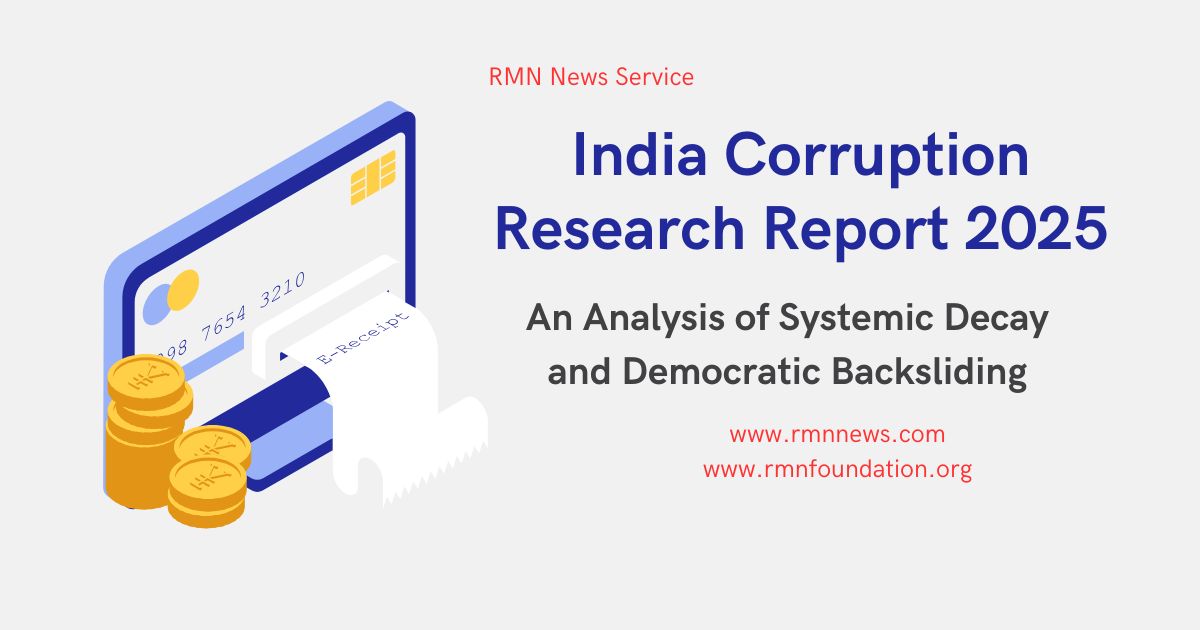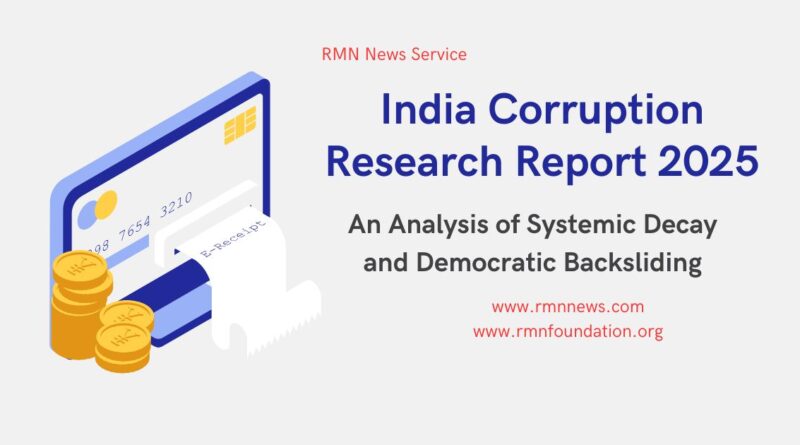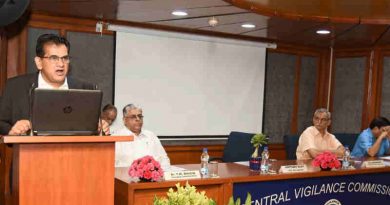India’s Governance in Peril: 2025 Report Reveals Corruption as a Systemic Norm

India’s Governance in Peril: 2025 Report Reveals Corruption as a Systemic Norm
Unless India undertakes systemic reforms, corruption will remain entrenched, crippling governance and eroding democratic values.
Introduction
The India Corruption Research Report 2025 (ICRR 2025), released by the RMN Foundation, delivers a sobering assessment of India’s governance landscape. Far from being a series of isolated scandals, corruption is portrayed as a deeply entrenched system that permeates political, bureaucratic, and institutional structures. The report argues that corruption has become a governance model in itself, undermining democracy and eroding public trust.
Structural Corruption: Beyond Bribes
Unlike traditional perceptions of corruption as bribery or embezzlement, the report highlights a structural dimension:
Embedded in Institutions: Corruption is facilitated by governance frameworks themselves, where loopholes and weak oversight allow malpractice to flourish.
Judicial Compromise: Courts and law enforcement agencies are often unable—or unwilling—to hold powerful actors accountable.
Political Patronage: Decision-making is frequently influenced by vested interests, shielding corrupt practices from scrutiny.
[ 🔊 India Corruption Research Report 2025: Audio Analysis ]
Impact on Citizens
The consequences of systemic corruption are felt most acutely by ordinary citizens:
Healthcare: Funds meant for hospitals and public health programs are siphoned off, leaving facilities under-equipped.
Education: Schools and universities suffer from resource diversion, perpetuating inequality.
Welfare Schemes: Subsidies and aid programs are manipulated, with benefits often captured by middlemen instead of reaching intended recipients.
Democratic Erosion
The report warns that corruption is weakening India’s democratic institutions:
Loss of Trust: Citizens increasingly view governance as opaque and self-serving.
Inequality: Corruption perpetuates privilege, widening the gap between elites and marginalized communities.
Governance Paralysis: Policy implementation is slowed or distorted by corrupt interests, reducing efficiency and credibility.
Recommendations for Reform
The RMN Foundation calls for urgent reforms to reverse this trajectory:
Transparent Oversight: Independent watchdogs with real enforcement powers.
Judicial Accountability: Stronger mechanisms to ensure impartiality and reduce bias in courts.
Citizen Engagement: Public monitoring of projects and budgets to increase accountability.
Technology Solutions: Digital governance tools to minimize human discretion and reduce opportunities for corruption.
Conclusion
The ICRR 2025 is not just a report—it is a warning bell. Unless India undertakes systemic reforms, corruption will remain entrenched, crippling governance and eroding democratic values. The findings underscore that the fight against corruption is not about punishing individuals but about restructuring governance itself.
The India Corruption Research Report 2025 (ICRR 2025) has been officially archived on Zenodo—a globally recognized research repository developed by the European OpenAIRE initiative and managed by CERN. This ensures worldwide visibility and academic traceability of its findings.
Rakesh Raman | LinkedIn | Facebook | Twitter (X)
💛 Support Independent Journalism
If you find RMN News useful, please consider supporting us.




